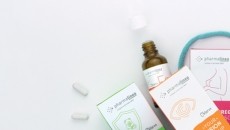Copper levels in supplements should be reduced
the mineral that may impact health, said a US researcher last week,
calling for the current upper safe limit for the mineral to be
lowered, reports Dominique Patton.
Judith Turnlund, a research chemist with the US Agricultural Research Service, has shown in recent studies that the body cannot excrete all of the copper when taken in amounts higher than that found in the diet.
Further, excess copper could be associated with reduced immune function and lower antioxidant status, Dr Turnlund told NutraIngredients.com, although the mechanisms for this effect are not yet clear.
"We can't give all the answers yet but here are indications that we need to be cautious," she said. "Supplement companies need to push for more research and should be cutting back levels if they are currently working with 3mg."
Turnlund's team, working at the ARS Human Nutrition Research Center in the University of California, Davis carried out a series of studies on adult men, giving them different copper intakes that ranged from 0.38 to 7.8 mg per day.
The researchers measured the doses excreted into the gastrointestinal tract and eliminated in the stools for 12 days after copper isotope infusions.
Although the amounts eliminated increased as intake increased, the researchers found that copper was consistently retained when intake reached 2 mg per day and increased further with increases in copper intake. Retention ranged from 0.3 to 0.9 mg per day.
"This is not a problem with usual dietary patterns but the data suggest that routine use of dietary copper supplements containing 2 mg or more per day could lead to accumulation of excess copper," Turnlund told an international symposium on trace elements in Northern Ireland last month (TEMA).
Excess copper could present health risks given the findings of earlier research by the same team, published in the American Journal of Clinical Nutrition (vol 79, pp1037-44) last year. The ARS researchers found that high copper diets over a long period (more than 150 days) altered on indicator of oxidant stress and several markers of immune function.
For the study, nine healthy men took 7.8mg of copper a day for four and a half months. Blood analyses before and after the study found that the high copper intake interfered with levels of antioxidants.
Men on a high copper regime also had lower immunity than the control group, with reduced ability to fight off the Beijing strain of the flu.
"Seven mg of copper is too much but we don't yet have the data to elucidate the right level for supplementation," Dr Turnlund said.
The research raises key questions for upper safe levels of vitamins and minerals. In the US, the Food and Nutrition Board advises that up to 10mg of copper daily is safe, while in Europe, the Scientific Committee of Food has set the USL at 5mg.
Turnlund believes the US level should be lower.
"I was on the committee that set this level but we just didn't have the data at that time."
Copper, found in liver, nuts, sunflower seeds and oysters, is important for the brain, blood and bones and in the US, dietary intake recommendations used to be higher. This triggered its addition to multivitamins and supplements.
But Turnlund believes it is time reassess the amounts used in supplements.
"Copper in a normal diet will vary from day to day but my concern is with supplements. Often the multivitamins contain 2-3mg per day, and if people are regularly taking several different supplements, their levels could be quite high," she said.
"The total body copper content of an average adult man is 80-100mg. So if you were accumulating 1mg per day, this total would double in just 100 days," she added.
More longer term studies looking at a modest level of copper supplementation are required to confirm the ARS findings.










